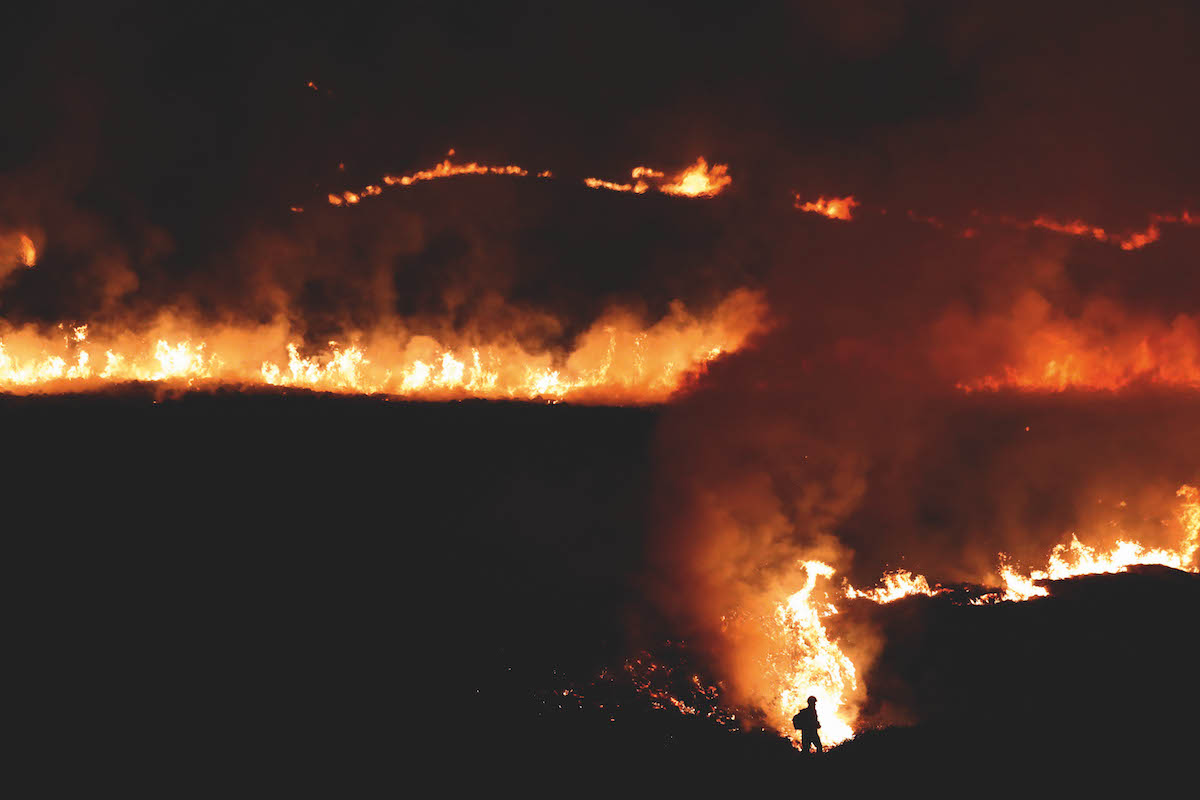Uncontrollable blazes are now inevitable
Restrictions on upland burning are having serious implications, with experts warning of worse fires to come if fuel loads are not reduced

A castastrophic wildfire on Saddleworth Moor affected 2,400 acres of moorland habitat
It is not ‘if’ but ‘when’ a catastrophic wildfire will occur in the English uplands. This is the stark warning issued by moorland management experts. The north of England has been hit by a series of extremely serious fires in the past few years, and moorland managers have warned that worse is yet to come if fuel loads are not reduced.
The new Peak District National Park Wildfire Risk Assessment 2022 says that the chances of wildfire getting out of control are increasing due to a failure to properly conduct controlled burns. Anthony Barber-Lomax, who co-authored the report, said: “The modelling revealed that without intervention to mitigate the risk, the fuel load is such that a blaze could become uncontrollable over a huge area. It’s not a case of if, but when.”
In 2018, a catastrophic fire hit Saddleworth Moor. The fire spread across 2,400 acres and released an estimated 40,000 tonnes of carbon dioxide into the atmosphere. Bringing the fire under control cost nearly £9 million. However, the experts believe that the conditions are now in place for a much more severe fire, one which would be impossible for firefighters to bring under control. Modelling suggests that the fire could spread at 2,393m/hour; a fire spreading at 800m/hour is reckoned to be the limit of what firefighters can control.
Nick Gardner, headkeeper on the Fitzwilliam Wentworth estate, explained the importance of controlled burns in fire prevention. He said: “We need all the tools in the box. There is a problem with cutting if the brash is left on the surface. Rewetting is definitely not enough on its own. Some of the boggier areas may be wet and wildfire won’t burn into the peat, but the surface vegetation will still burn, so the fire will travel through those areas.”
Under political and legal pressure, Natural England has introduced restrictions on upland burning that have limited the ability of land managers to conduct controlled burns. (Read more on upland burning.)
Mr Barber-Lomax explained the implications of the restrictions. “Where there is a no-burn policy, we are seeing accumulations of biomass almost everywhere across the Peak District. The term ‘rewilding’ is sometimes used, which has some merits, but the peat needs to be protected otherwise everything will go up in one fell swoop.








